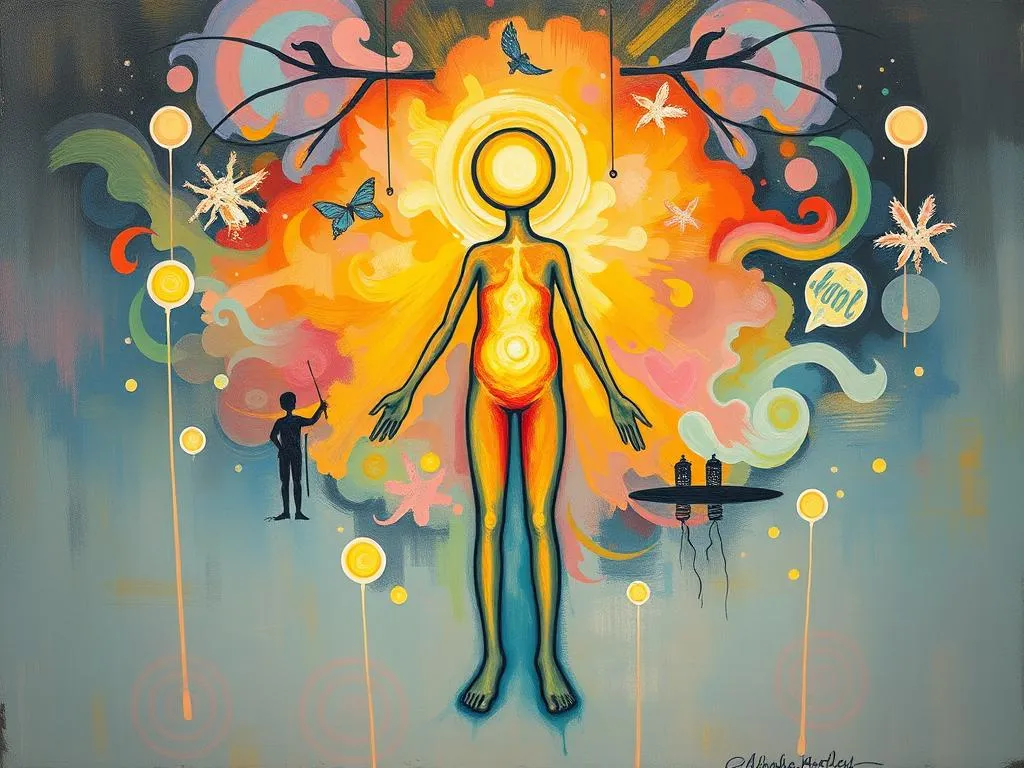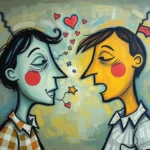
Dreams are a fascinating window into the subconscious, revealing our deepest fears, desires, and anxieties. Among the myriad symbols that can manifest during our nighttime reveries, the human body stands out as a particularly rich and complex symbol. Dreams featuring the human body can evoke a wide range of emotions and interpretations, prompting individuals to explore their physical, emotional, and spiritual states. Understanding these dreams can lead to profound insights about ourselves and our lives, making this topic one of significant relevance for dreamers everywhere.
Symbolism and Meaning
The human body in dreams serves as a powerful symbol, representing various aspects of our identity, health, and relationship with the world. At its core, the body symbolizes the self—our physical presence, our sense of identity, and our connection to others. When we dream about our bodies, we often confront issues related to body image, vulnerability, and personal autonomy.
One of the most common interpretations of dreaming about the human body is the exploration of self-acceptance. If the dreamer experiences feelings of shame or discomfort regarding their body in the dream, it may reflect unresolved issues with self-image in waking life. This could stem from societal pressures or personal insecurities. On the other hand, a dream featuring acceptance and appreciation of the body might signify a journey toward self-love and empowerment.
Moreover, the state of the body in the dream can also indicate one’s health and well-being. For instance, dreaming of a healthy, fit body may reflect a sense of vitality and confidence, while dreaming of an injured or decaying body could symbolize feelings of weakness, illness, or emotional distress. This connection between the physical state and emotional health underlines the importance of listening to our bodies and recognizing the signals they send us.
The body can also represent boundaries and autonomy. Dreams where the body is manipulated or controlled by external forces may signify feelings of powerlessness or a lack of control in one’s waking life. This could relate to a challenging relationship, workplace dynamics, or personal circumstances where one feels constrained. Conversely, dreams emphasizing freedom of movement and bodily autonomy can reflect a sense of empowerment and personal agency.
Key Scenarios and Variations
Dream scenarios involving the human body can vary widely, leading to different interpretations based on the context and emotions experienced during the dream. One common variation is dreaming of being naked in public. This scenario often signifies vulnerability, exposure, or a fear of judgment. The dreamer may be grappling with insecurities or feeling unprepared for a situation in their waking life. Alternatively, being naked might also represent a desire for authenticity and a longing to shed societal expectations.
Another prevalent scenario involves dreaming of injuries or illness. Such dreams can evoke strong feelings of fear and anxiety. They might highlight the dreamer’s concerns about their health or a significant life change. If the injury is severe, it could symbolize emotional wounds or past traumas that have yet to heal. Conversely, dreaming of healing from an injury often suggests recovery, resilience, and a positive transformation in the dreamer’s life.
Dreams of altered body shapes or features are also noteworthy. For instance, dreaming of having an exaggerated or distorted body may represent feelings of inadequacy or the pressure to conform to societal beauty standards. Alternatively, dreaming of a more idealized body could indicate aspirations for improvement, whether that be physical fitness or emotional growth. The key is to examine the emotions tied to these changes, as they can reveal deeper insights into the dreamer’s self-perception.
Another variation worth noting is dreaming about the death of a body. This scenario can be alarming but often symbolizes transformation and change rather than a literal end. It might indicate the end of a particular phase in life, the shedding of old habits, or a significant personal transformation. Embracing this change can lead to personal growth and new beginnings.
Lastly, dreaming of body parts—such as hands, feet, or eyes—can carry specific meanings. Hands may symbolize creativity and the ability to take action, while feet can represent one’s path in life and stability. Eyes often signify perception and awareness. Paying attention to the condition and functionality of these body parts in dreams can offer further insights into the dreamer’s current life situation and emotional state.
Real-Life Connections and Takeaways
Connecting dreams about the human body to real-life situations can provide valuable insights into our personal journeys. When reflecting on such dreams, it’s essential to consider the emotions felt during the dream and how they relate to waking life experiences. Are there areas where you feel vulnerable, insecure, or out of control? Understanding these connections can foster self-reflection and personal growth.
One practical approach to self-reflection is to keep a dream journal. By recording your dreams, particularly those involving the human body, you can track recurring themes and symbols. This practice can help you uncover patterns in your thoughts and emotions, offering a clearer perspective on your self-image, health, and personal autonomy.
Additionally, consider engaging in conversations with trusted friends or professionals about your dreams. Sharing your experiences can open up new avenues for understanding and may lead to valuable insights from others’ perspectives. Sometimes, discussing our dreams allows us to externalize and process our feelings in a constructive way.
It’s also beneficial to explore mindfulness and body-awareness practices. Activities such as yoga, meditation, or even simple breathing exercises can help cultivate a deeper connection with your body. These practices can enhance your understanding of how your body communicates with you and may lead to greater self-acceptance and appreciation.
Lastly, remember that dreams often serve as a reflection of our current emotional state. If you find yourself frequently dreaming about the human body, take the time to assess your feelings about your physical self and your overall well-being. Are there areas in your life where you feel empowered or constrained? Addressing these feelings can foster healing and promote a healthier relationship with your body and self-image.
In conclusion, dreams featuring the human body are rich with symbolism and can offer profound insights into our lives. Whether they evoke feelings of vulnerability, empowerment, or transformation, these dreams encourage us to confront our self-perceptions and emotional well-being. By reflecting on these experiences, we can gain a deeper understanding of ourselves and navigate our journeys toward self-acceptance and personal growth. Embrace the messages your dreams convey, for they hold the keys to unlocking your innermost thoughts and feelings.







